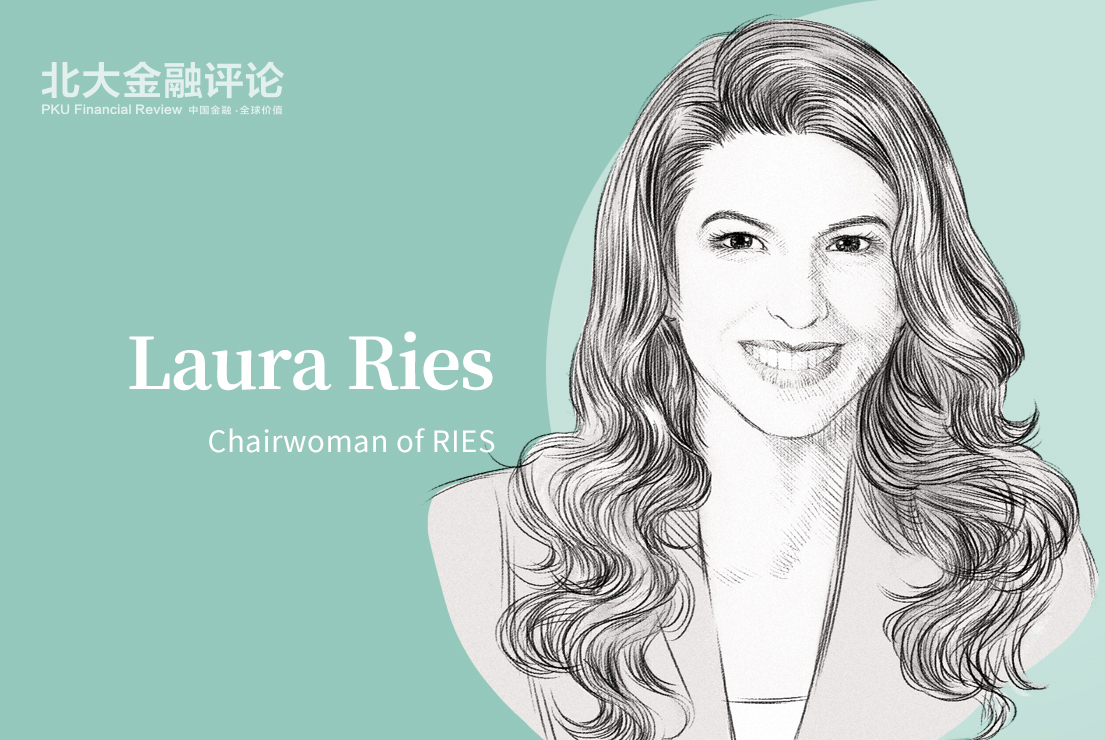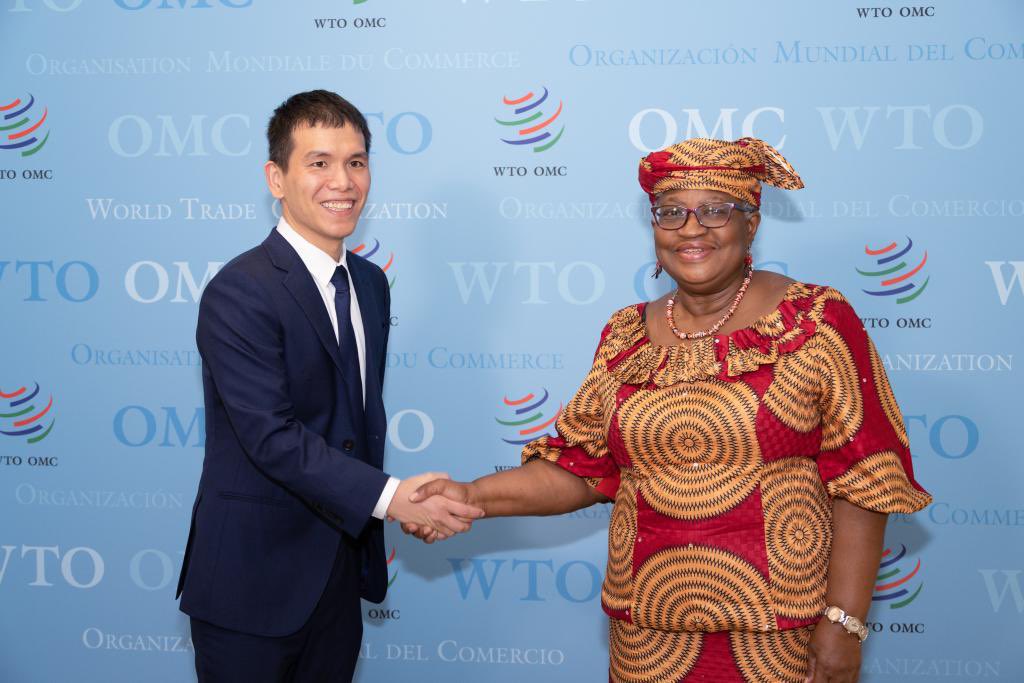As the daughter and business partner of Al Ries, father of positioning, Laura Ries the Chairwoman of RIES, as well as a television commentator who frequently appears on the Fox News and Fox Business Channels, CNN, CNBC, PBS, ABC, CBS, etc. In the interview with
PKU Financial Review, Laura Ries states that, a brand leader in its category must get in consumer’s mind.
PKU Financial Review: Positioning: The Battle for Your Mind enjoys a high reputation in China, and positioning theory is also the most frequently used marketing methodology by Chinese enterprises. From the perspective of consumer’s mind, positioning refines a unique category champion, so as to make people impressive. However, what we are curious about is that this kind of impression is driven by product itself or through a large number of advertising and public relations so as to form the mental possession of consumers? How do you view the relationship between brand and product power?
Laura Ries: There's a combination of things that are going on there. First and foremost, positioning theory is about owning an idea in the mind. You mentioned category, and we did realize and what the book talks about as well as in our other books, is the importance of the category itself. If you can be the first and pioneering a new category, owning that position in the mind can be one of the most valuable and powerful things. Because the idea about positioning is leadership. Of course there are strategies of things to do if you're not the leader, since there is always an opportunity for a strong NO.2. But first and foremost, to get in the mind requires a narrow focus, and one way to do it is to be the first in a new category.
Positioning’s idea is about credibility. When a brand is the first in a new category, there's a lot of news value in that itself, because new category generates news and word of mouth. These are the things that lead for credibility and authenticity. People excited about the category not the brand. For example, American people would say we blow our nose with a Kleenex, because this brand has already pioneered pocket tissue.
PKU Financial Review: In your book Positioning: In the 21st Century, you mentioned that never line-extend an existing brand into a new category. How do you evaluate the success of General Electric Company? It’s a company with diversified services, such as aircraft engines, power generation equipment, financial services, medical imaging, television programs, plastics……
Laura Ries: For a company over 100 years old, GE used to be successful and it was is a big star of the last century. GE got into many businesses with the same brand name. As you may know, Al Ries started his career at GE in the advertising department. He had been working for 6 years there before he started his own agency.
What happened was that they got clobbered in many of those industries, for example consumer electronics, by brands that were more focused and did a much better job in terms of positioning. They have gotten out of a lot of businesses and haven't been making money.
Today we see the successful ones are multi branded companies, but not a company with one name on everything. The new 21st century type of categories and industries which have been dominated by companies that truly understand the power of positioning.
PKU Financial Review: General Electric Company is declining, how do you evaluate the success of Red Bull? Red Bull is both successful in the field of energy drinks and x-sports, it has the most powerful F1 team right now.
Laura Ries: Red Bull is one of the most interesting case studies ever. It is a drink that was very popular in Thailand and then in Austrian entrepreneur brought it to the world, making it a global brand with a global brand name Red Bull, and established the identity of this new category called energy drink. I just have to say that Red Bull does not very taste, but sometimes “the bad taste” drove into people’s mind that “this must be really strong stuff”.
Today, with a 9 billion dollar brand value, Red Bull is a dominant brand in most markets of the world and it takes 42% of the market share in US. Red Bull got into the field of F1 is a way of sports sponsorship in reinforcing the brand. Instead of dolling out a few dollars to every sport in the world, they went really hardcore into F1 and having their own teams. They are not trying to be known as F1 but supporting the Red Bull brand by doing this sponsorship. So this is a great example of how you promote your brand, which is picking one thing and doing it in a really big way, instead of doing a little bit of everything.
PKU Financial Review: The magic thing about Red Bull is that, it successfully linked an herbal drink from Thailand with sports and energy in people’s minds and it became world-wide famous. How do you view this kind of powerful category positioning? Is it imitable?
Laura Ries: Why Red Bull is so famous is because they were the first, and that's an incredibly powerful position to be in. Moreover, this is a category that is exploding now. People are drinking far less sodas and more new categories of energy drinks. There are many competitors and Red Bull just leads the path in them.
Red Bull did not just pick any sport, they picked a sport that really went well with their brand. You can imagine Red Bull sponsoring golf would be the worst thing. So it is always incredibly important to balance what you're doing.
To think about a brand like Buick, it was sponsoring Tiger Woods in his golf career, but there was no credibility that Tiger would ever drive a Buick in the US. So the credibility when you do these types of sponsorships is very important. You can imagine these young drivers of F1 definitely guzzling Red Bull, maybe after the race or before as well too.
PKU Financial Review: In the book Positioning: In the 21st Century, you mentioned that a company should be the first one or leading in its category, but it is kind of difficult for most of the companies. Do you have any advice for those companies which are not the top ones?
Laura Ries: There is only one bird that can be in the front of the pack. As a result there are many followers, but unfortunately many of those are not going to survive. When Red Bull had some success after a year, 100 new brands of energy drinks entered the market. They had a lot of competition but most of them did not survive.
However, there is a very simple formula for competing with a brand leader, and that is doing the opposite of what almost every company does. For example, almost every company takes a look at Red Bull, and they taste-test it and market-study it, as well as doing consumer-survey to see how they can be better. But that is the wrong way. Because the perception is that the leader is better, so changing minds is the most difficult thing to do. What will get in the mind would give you an opportunity with the consumers to say that you are different. For Monster it was a simple difference of being in a larger size can. I don’t know if larger can is better, but it definitely broke through and got in the mind and people wanted a larger size more drink for the value.
Another one of my favorite examples is TikTok. I've got teenage kids and they spend all the time watching videos with YouTube in landscape view. What TikTok did is that they made you watch the video vertically, the way you look at your phone. It really was the difference of switching the orientation to suit a mobile phone and that was a brilliant stroke of being different.
PKU Financial Review: Which company in China have you been impressed by using positioning theory in marketing practice?
Laura Ries: We have had our recent office in China for over 15 years, and we have had wonderful opportunities to work with many companies in China. One of our favorite and oldest clients is Great Wall, a tremendous success story and we have been working for them for over 15 years, using the principles of positioning and multiple brands.
Great Wall started with pick-up trucks and diversified into many different vehicles. What we told them is to narrow the focus, and to get in the mind to build a Great Wall brand. We looked at the situation of car market in US that SUV is the most practical vehicle ever, and if you have a strong brand in this category, consumers will love it. So we set the focus on SUV and they had a brand called Haval. We made it an economical SUV under 100,000 RMB, a fantastic narrow approach to be affordable yet stylish. Later on, we have worked with them on the launch of Wey and recently, the launch of Tank, which is the “off the road” SUV that is dominating the market. Styling and functionality of the vehicle, combining with a sharp name and visual positioning, have gone a really long way in the success of that company.
PKU Financial Review: Based on your global vision and professional experience, what advice will you give to China's enterprises?
Laura Ries: One of the challenges that Chinese enterprises have on the global market is the name itself, since Chinese language is very different from most of the other languages in the world. So having a brand that can sound right in English is incredibly important. The opportunity for a Chinese brand is to use a separate name in the rest of the world, and use the Chinese characters in China. TikTok is one of a great examples. It is a just a fabulous success story of being different and having a brand starting with a narrow focus.
Another important thing for a company is that you need to have patience, because it takes time for a brand to get in the mind. Courage and patience are two incredibly important things that need to go along with the theory of positioning.
 * This article was initially published in PKU Financial Review.
* This article was initially published in PKU Financial Review.















